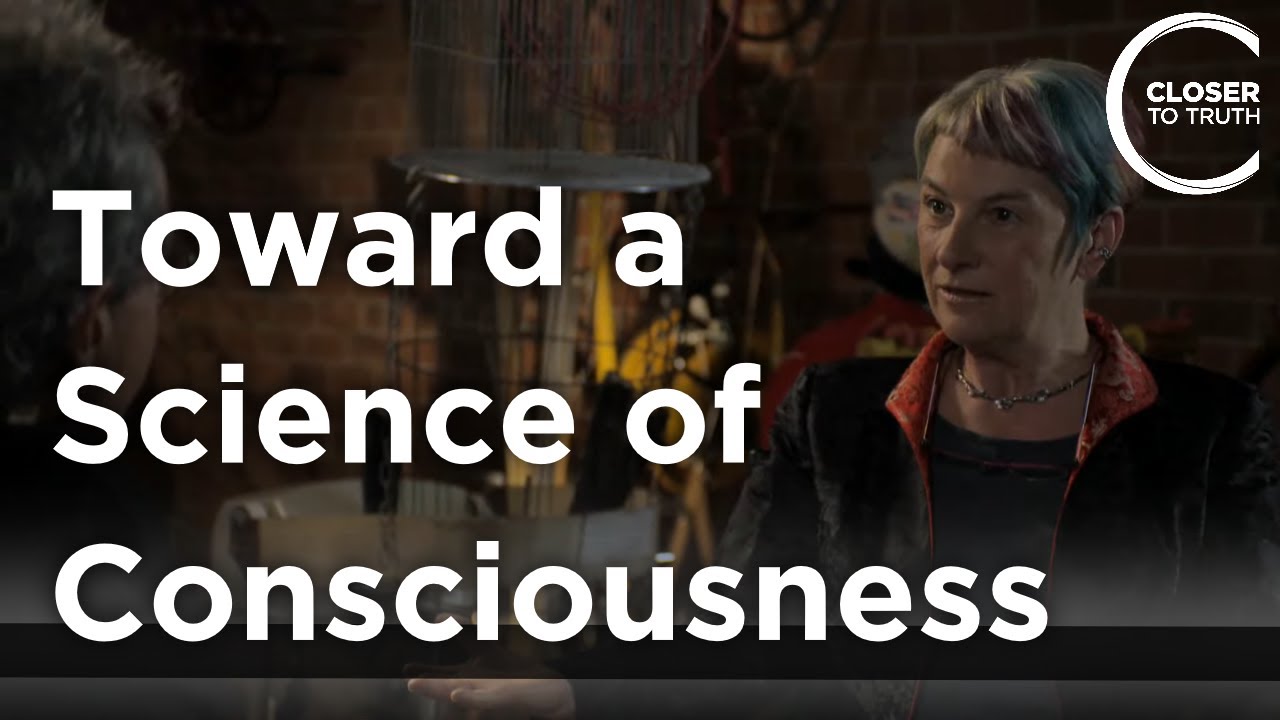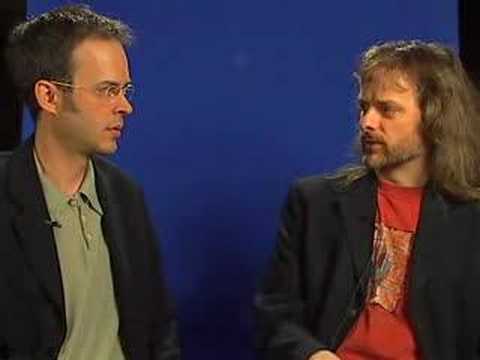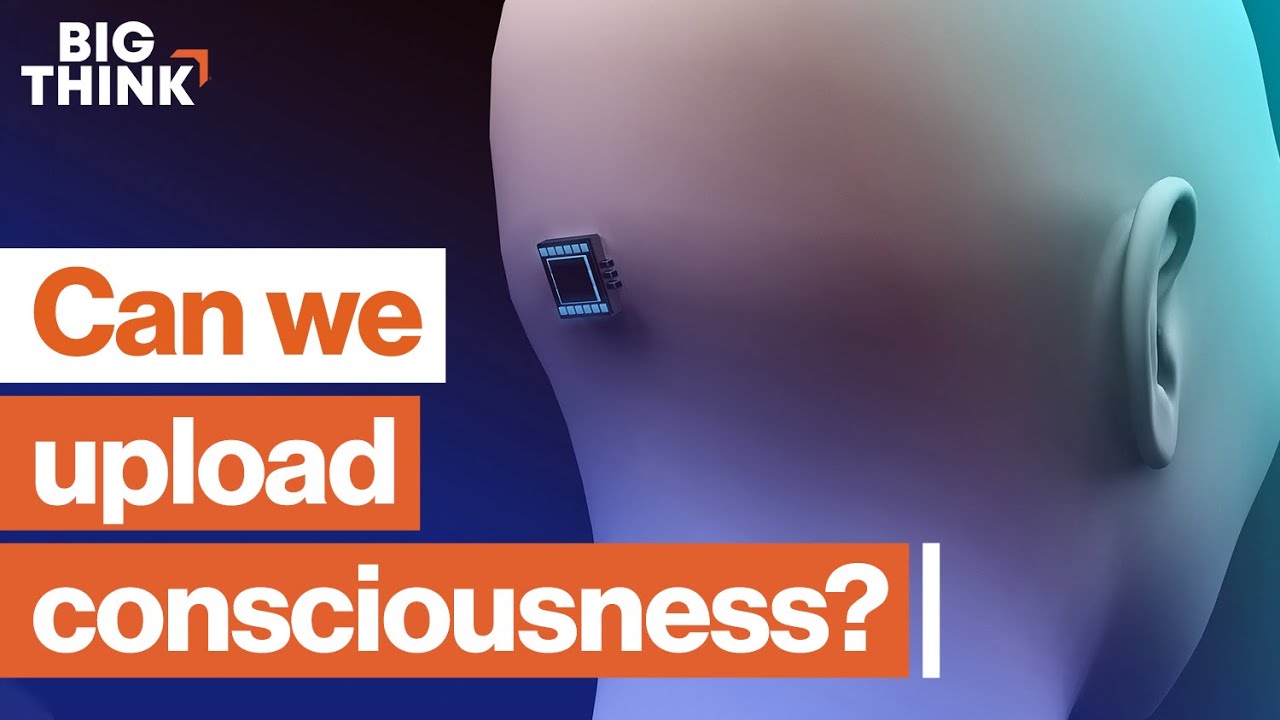Closer To Truth
How can consciousness be addressed scientifically? The Tucson conference, founded in 1994 and celebrating its 20th anniversary in 2014, exemplifies the quest. What are the range of theories? Where do participants position themselves? Meet the founders, early visionaries, new scientists and thinkers. Progress is being made, but what does this really mean?
Free access to Closer to Truth’s library of 5,000 videos: http://bit.ly/376lkKN
Support the show with Closer To Truth merchandise: https://bit.ly/3P2ogje
Watch more interviews on consciousness: https://bit.ly/3xSeqZk
Susan Jane Blackmore is an English freelance writer, lecturer, and broadcaster on psychology and the paranormal, perhaps best known for her book The Meme Machine.
Register for free at CTT.com for subscriber-only exclusives: https://bit.ly/3He94Ns
Closer to Truth, hosted by Robert Lawrence Kuhn and directed by Peter Getzels, presents the world’s greatest thinkers exploring humanity’s deepest questions. Discover fundamental issues of existence. Engage new and diverse ways of thinking. Appreciate intense debates. Share your own opinions. Seek your own answers.
Source



For those thinks its science but its not , that you able to see a angel come down from that speaks or see a mary virgin that you sightings that is true . Can you do this ,Let see you be at 2 different places while your on sercurty cam ,, let see for those said impossable , I really like to see you to do it . Its not a lie ,its not a joke , no mirror tricks, no computer fake images to be someone else , and no person only by supernattral form of energy and truth by your truth self .
Breathing can be controlled by consciousness, however, it will proceed on it's own with out it. Consciousness is much more than just subjective experience.
Exactly right. We have a long history of abysmally wrong intuitions. This is good reason to think our intuitions about consciousness are not a reliable starting point.
8:51 It's a false problem. I like that idea.
I still beleive that consciousness is a mixture thought processes and feelings, be it fundumentaly "pain or pleasure" and that more complex emotions evolved over millions of years. When we understand what makes the "feelings" then we have understood the essence conciencesness. Any lifeforms, even the most primitive ones have conciencesness because they feel, they may not understand what they "feel" but they still feel and therefore have that essence of conciencesness.
It's interesting how much we don't hear Neuroscience experts suggest that what we call consciousness might actually be an illusion. This exposes the human bias and perhaps some identity confusion.
Who says there is a subjective experience? Maybe there is just 'seeing', 'hearing' etc.
As i understood the main reason why science cannot explain it,is that consciousness is not an object.
Inetestingly enough she is speaking of something thath was disproven in nobel prize for physics in 2022. Universe and all of its localities are not real……
Entelechy is a philosophical concept that originated in ancient Greek thought and has been used by various philosophers throughout history. At its core, entelechy refers to the idea of an inner potential or driving force that moves things toward their natural end or goal.
The term "entelechy" was first used by Aristotle, who believed that everything in nature has an inherent potential or goal that it strives to achieve. For example, an acorn has the potential to become an oak tree, and it will naturally strive toward this goal if given the proper conditions and environment.
The concept of entelechy was later developed by the German philosopher Gottfried Wilhelm Leibniz, who used it to describe a pre-existing inner principle that determines the nature and behavior of all things. According to Leibniz, this inner principle is what gives a thing its identity and makes it what it is.
In modern times, the concept of entelechy has been used in various fields, including psychology and biology. The psychologist Carl Jung, for example, used the concept of entelechy to describe the inherent potential for growth and development within the human psyche. Similarly, the biologist Hans Driesch used the concept of entelechy to describe the innate developmental potential within living organisms.
Overall, the concept of entelechy emphasizes the idea that everything in nature has a purpose or goal that it naturally strives toward. It suggests that there is an inner driving force within all things that moves them toward their natural end or potential, and that this force can be harnessed and understood through careful observation and study.
Minus humans, to the materialist, consciousness ceases to exist. Absurd.
Brain functions are like the problem that presented the invention of the wheel.
At 9.25 ish she seems to accept non duality is the only way to look forward..?
practical, purposeful, inquisitive intelligence…. thank you…
She's so wrong it's laughable.
I have had 2 Out of Body Experiences and I can tell you now, consciousness is MORE than brain. 1000% truth.
Very informative and interesting discussion. I found your guest to be very well informed and she expresses her opinions very clearly and understandably.
Her theory is laughed at and she is considered a joke by most. Same goes for Dennett
This is a clear speech and honnest to agree we don’t understant what is conscienciousnes…..we do not know
Maybe there exists only One Consciousness if you want to call it that. It could pervade the whole fibre of the visible and invisible 🫥 Universe.
There is no observer (no consciousness).
There is nothing observed (no outer world).
There is only observation (the physical world).
Great, enjoyable discussion.
Consciousness is the sensation of being a doer.
"…where is consciousness.." (in the brain 🧠)?
What would consciousness be without something to be conscious of? Is consciousness fundamentally an emergent phenomenon of a duality of the self and nature?
We suspect that other people posess the same consciousness we do and we are conscious that other people do not posess the same consciousness we do. The color blind, the autistic, the artistic, children, etcetera. We go to school to condition our selves to different aspects of this "one" consciousness.
What happens when a group of individuals develop a type of consciousness different and manipulative of another group? Is this part of what it means to be conscious? Or does this have nothing to do with consciousness? Where do you draw the line between consciousness and "intelligence"?
10:41
another possibility the third one is is
10:45
a dramatic breakthrough that no one's
10:47
thought of that no one was looking for
10:48
specifically and uh we'll all go oh of
10:51
course
10:52
well I don't know what it would be
10:54
obviously
Great to see such clarity & humility.
Personally, I subscribe to the notion that the brain is a receiver – & that consciousness, & thought(s) – are 'external'.
Fixating on the brain as the source of consciousness is barking up the wrong tree – much as would be examining a radio to see 'where' the voices & sounds originate.
This talk is 10 years old, right?
Her premise which conflates the postulate of an objective "self" with the idealist perspective is entirely misguided. That may have been implied in the Cartesian "I think, therefore I am," but it is not present at all in the Vedantic and other contemplative traditions; i.e. those which she characterizes as extreme idealism. In those philosophies, the objective self is recognized an illusion concretized by the egoic mind.
Anil Seth book – Being You- very useful in delineating the controlled hallucination that is our experience. If I take a car trip to Boston, I can say “there’s something it’s like and I can’t define it.”
But You Can Define It. The car, the petrol, the road, the duration. But when it’s done, where is it?
Awareness/Experience are emergent phenomena from brain function. The brain organizes the interface between the organism and its surround, and between the total organism and its parts.
It provides awareness of its operation as Attention and Memory, for the organism’s evolutionary tasks to be contemplated and understood. Why is liquid water wet? Emergent property of liquid.
“Consciousness “ is not a “thing “ nor is a car trip to Boston.
Notice her 3 possibilities are all based on materialist assumptions with some great hand waving 👋 . Good luck 🙂 materialism can never explain AWARENESS ❤
Awareness is known by awareness alone.
I find her clarity and honesty much refreshing.
In addition to neuroscience, what about biochemistry and the use of psychoactice substances, such as psilocybin, to better understand the workings of human consciousness…